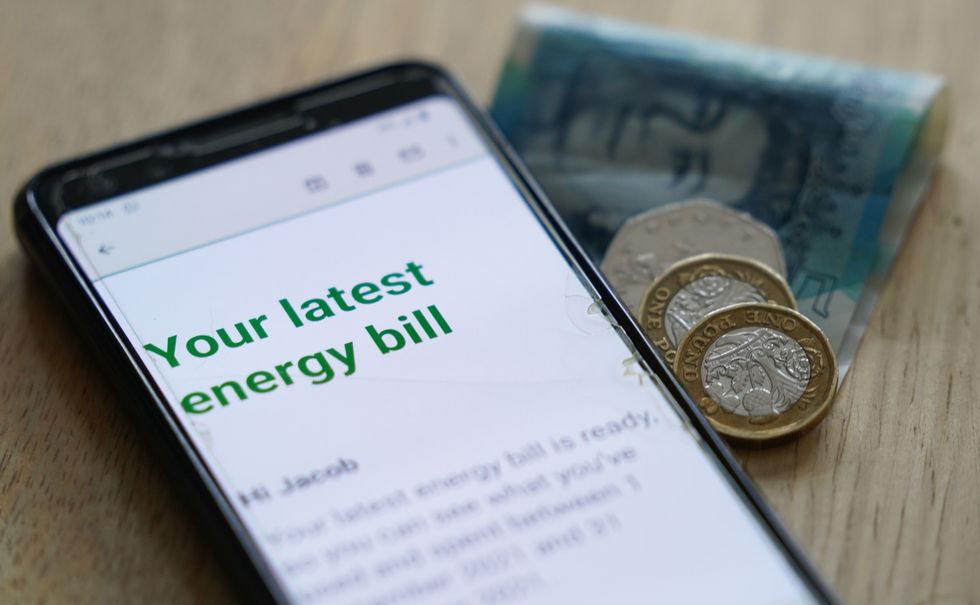Energy suppliers are taking the country’s regulator to task over the impact prepayment meters are having on bills
Don't Miss
Most Read
Trending on GB News
Millions of households on 1970s-style “Pay As You Go” prepayment meters are “suffering in silence” and paying more towards energy bills, an energy supplier boss has claimed.
The CEO of Utilita Energy is slamming the Ofgem for its lack of “meaningful action” in making sure smart meter installation targets are being met.
Bill Bullen highlighted evidence from the supplier which revealed how old prepayment meters are hurting 2.25 million vulnerable and low-income families.
This evidence has been acknowledged by consumer protection groups including Citizens Advice and the Committee for Fuel Poverty.
According to Utilita, households on old-fashioned prepayment meters are more likely to fall into fuel poverty.
This is the term used to describe when households are forced to spend at least 10 per cent of its income on energy bills to adequately heat their home.
Do you have a money story you’d like to share? Get in touch by emailing money@gbnews.uk.

One of the country's leading energy suppliers is calling for prepayment meters to be banned
GETTY
Bullen called for Ofgem to “introduce an immediate ban” on old prepayment meters and for rules to be in place which mandates suppliers have to prioritise smart meter installations.
He explained: “Despite attending a roundtable Utilita hosted in December 2022, which called for a ban on the inferior and outdated meters, industry stakeholders have taken no meaningful action. In fact, Ofgem has lowered the bar in terms of suppliers’ smart installation targets.
“Citizens Advice’s latest consumer action plan acknowledges the benefits of a smart meter for prepayment households but refers to prepayment households being reluctant to accept one.
“As a specialist Smart PAYG supplier we have experienced few issues with smart-enabling 95 per cent of our customer base. I simply cannot accept that customers are the main barrier here.”
Last month, Ofgem confirmed two more suppliers are now allowed to restart involuntary installations of prepayment meters after a temporary band.
Tru Energy and E.ON reportedly meet the industry regulator’s terms and conditions for fitting these devices in homes.
This follows January’s announcement that EDF, Scottish Power and Octopus Energy are now permitted to install prepayment meters without a household’s consent.
A prepayment meter is now allowed to be forcibly installed into a household if it is considered to include the “highest risk” customers,
These include households which are the residence of individuals who require continuous energy supply for health reasons.
Energy suppliers need to make at least 10 attempts to contact a customer before a prepayment meter is installed.
At the time, an Ofgem spokesperson said that the regulator’s number one priority is “protecting consumers".
LATEST DEVELOPMENTS:

Households have struggled with rising energy bills in recent years
PAThe organisation said: “We’ve made clear that suppliers must exhaust all other options before considering forced installation of a prepayment meter, and consumers can help themselves by reaching out to their supplier as soon as possible if they think they won’t be able to pay their bill, so payment options can be discussed.
“Our rules on when, and how, a prepayment meter can be installed are clear and we won’t hesitate to take action if suppliers act irresponsibly.”
Households have been saddled with fluctuating energy bills over the past year amid the ongoing cost of living crisis.
GB News has contacted Ofgem for comment regarding Mr Bullen’s comments.









